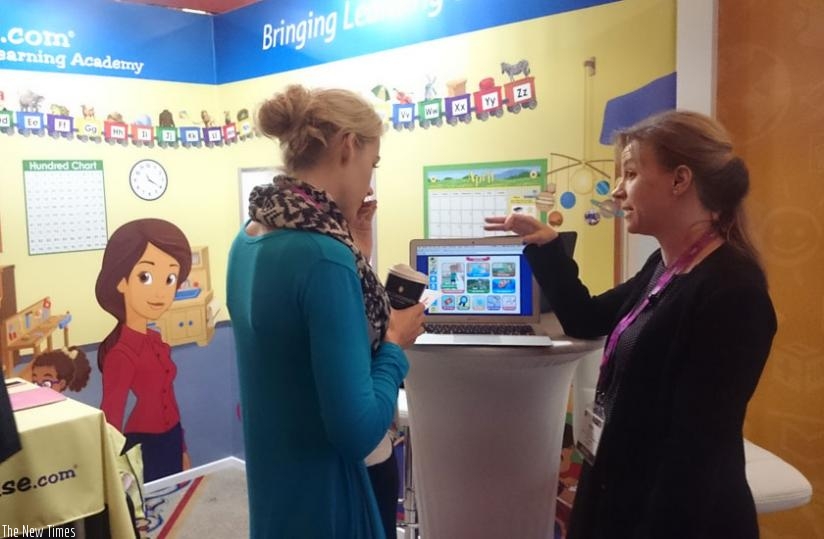With the world becoming one global village, the demand for better skills on the job market is rapidly forcing a shift in education systems. During the inaugural BETT Leadership Forum for Africa and the Middle East in Abu Dhabi, last week, several experts pointed out that ordinary classrooms no longer have the capacity to churn out competitive students.


With the world becoming one global village, the demand for better skills on the job market is rapidly forcing a shift in education systems. During the inaugural BETT Leadership Forum for Africa and the Middle East in Abu Dhabi, last week, several experts pointed out that ordinary classrooms no longer have the capacity to churn out competitive students.
Anthony Salcito, the vice president at Worldwide Education at Microsoft corporations, said that some graduates find it hard to thrive on the job market because of inadequate exposure to ICT skills in classrooms.
"The trends in the job market are causing a drift in the competences required. Employers need people who can reflect on what is happening in a manner that is project-based,” said Salcito.
Salcito also added that the high rate of unemployment among youth is a global problem that could be addressed with modern teaching approaches that foster acquisition of essential skills.
"Global unemployment for the youth is a big problem. However, competent graduates can be created through a holistic combination of technology and better approaches,” he added.
Among the other challenges, the educators pointed out is that schools also need to ensure that there is adequate infrastructure to support technology-based learning.
For example, Mohamed Ghayath, the director-general of Mohammed Bin Rashid Smart Learning Program (MBRSLP), a smart learning programme, observed that with limited ICT infrastructure in schools both the expectations of teachers and students are lowered.
"Even when you roll out this technology in schools, you must ensure that you don’t turn back. Any retraction in the supply of such materials reduces both learner and teacher confidence in ICT,’’ said Ghayath.
Meanwhile, Stephen Reid, the founder of Immersive Minds, a programme that enables students learn using games, noted that pedagogical norms that considers games being just for kids to play limits using this technology for learning during the early stages.
"We need to fight such beliefs. Like most technologies, games too develop soft skills such as empathy, judgments and assessments. Also, children can build many features relative to the real world through the use of games,” he said.
Improving ICT in Rwanda Schools
Much as the Government of Rwanda is already embracing use of technology within classrooms, Salcito said that continuous efforts are needed to maintain the country’s position among the top on the African continent.
"Across Africa, Rwanda is one of the highlights for technology after pushing for a broader goal for more than a decade. But more needs to be done within the classrooms to maintain such achievements,” he added.
It’s under this background that Microsoft entered several partnerships with Rwanda’s Ministry of Education.
Under this programme, we aim to ensure that all 3.2 million students obtain digital IDs and benefit from the latest version of Office 365.
Additionally, teachers are to be provided with the OneNote Platform to enable them to prepare delivery of digital lessons.
And at least 160 education institutions are to be transformed into Microsoft academies, where students will get equipped with skills for both productivity software skills such as word, excel and power point and solutions to enable them start their own companies.
Nkubito Bakuramutsa, the ICT advisor to the Minister of Education, said that these initiatives are expected to improve the skills of learners.
"The Ministry of Education entered partnerships with Microsoft to enable a platform that provides students with skills relevant for the needs of the 21st century,” said Bakuramutsa.
Bakuramutsa also emphasised that proper use of ICT in schools is necessary to enhance problem-solving that makes students more relevant on the job market.
"Critical thinking, collaborative learning make students readily employable. We hope to achieve this by equipping them with the necessary ICT skills for the job market,” he added.


